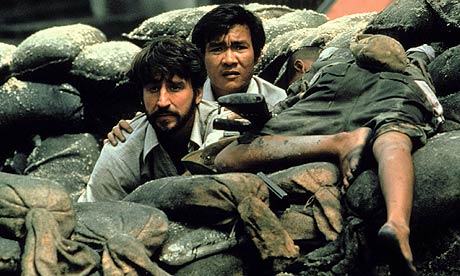Writer: William Rose
Composer: Billy Hill
AFI Rank: 99 (1998), - (2007)
BFI Rank: -




Both on screen and off you could say this classic movie was somewhat of a family affair. The trio of Stanley Kramer, William Rose and Spencer Tracy had previously worked on It's a Mad Mad Mad Mad World just 4 years earlier, Kramer and Tracy also pairing up on Inherit The Wind in 1960. Add to that the fact that this was Hepburn and Tracy's ninth film together, having started back in 1942's Woman of the Year. There was an accompanying and often complicated off screen romance which lasted until Tracy's death just 17 days after the filing wrapped on Guess Who's Coming. Watching today you really have little idea how sick he really was. Hepburn knew and her tears are real. The studio was nervous and both her and Kramer put up their salaries as backing for Tracy dropping out. It proved to be one of his most memorable performances, nominated for a posthumous Oscar. Hepburn won for best actress, her second of four, a record still not broken today. She never watched the film. The memories were too painful.
With the exception of a few scenes the action takes place all within the house over a single day. Scenes outside or away from the house take advantage of this and each feels like an escape, in fact one scene literally is. Every masterpiece has its flaws and for me there is just a single scene involving some dancing outside the house that is more jarring that was probably intended. It is there to remind you that this is 1967 and the times they are a changing.
The acting talent on display throughout the movie is breathtaking. Poitier, Tracy and Hepburn play off each other beautifully. Just when you think one will steal the scene, one of the others steps up. I'll avoid the sporting analogies but it is a real team effort. Much of the best acting is done without a single line of dialog, especially earlier on in the film. Hepburn's real life niece, Katharine Houghton, admirably performs her part but is never really a part of the game. Beah Richards as Poitier's mother surprises you when she finally opens up. Rose's script is the real star at the center of all of this. It won him the Oscar, something The Ladykillers should have done a decade earlier. "You can do the watusi, but we are the watusi."
It received another 8 Oscar nominations in addition to the wins for Rose and Hepburn. Quite an achievement when you consider that the same year brought us such classics as In The Heat Of The Night, Bonnie and Clyde, The Graduate, Cool Hand Luke, Doctor Dolittle, Camelot, The Dirty Dozen, In Cold Blood, Casino Royale and The Jungle Book.
The film has aged incredibly well and is as fresh today as it was over 40 years ago. I watched it in HD via Netflix streaming and I can say it looks incredible. No blu-ray release yet and so I highly recommend it. It is not the original aspect ratio at full 16:9 but then the 40th Anniversary DVD was presented in the same ratio. It was originally filmed in 1.85:1 and so this is not too criminal.
If you have not seen this, you should. It will surprise you. The journey is not predictable even if the destination is. If you have not seen it recently, I suggest you take a fresh look as much has changed since it first saw the light of day and I believe the movie is even stronger as a result.









